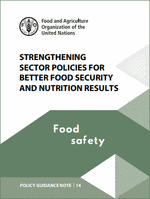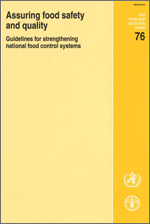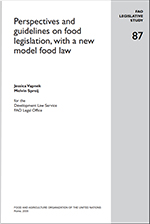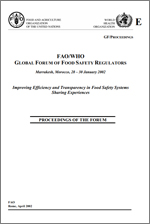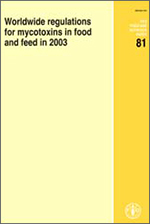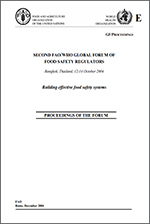Food laws & regulations
National legal frameworks are a key pillar in an effective food control system. In all countries, food is governed by a complexity of laws and regulations, which set out the government’s requirements to be met by food chain operators to ensure food safety and quality. The term “food law” applies to legislation which regulates the production, trade and handling of food and hence covers the regulation of food control, food safety, quality and relevant aspects of food trade across the entire food chain, from the provision for animal feed to the consumer.
FAO’s work on food safety and quality laws & regulations
Upon request, FAO helps governments in drafting, amending or updating national food safety and quality laws and implementing regulations to strengthen the system of food control and surveillance, in accordance with international law and best practices. This legal assistance is provided through teams of legal advisors working closely with food safety experts in a manner that is tailored to the specific needs and legal system of member states. Due consideration is given to:
- Harmonizing national legal frameworks with Codex Alimentarius standards, guidelines and related texts, which constitute the benchmark for food safety and quality at the international level;
- Promoting the adoption of the risk analysis approach for improving food control systems;
- Supporting countries in their efforts to develop science and evidence-based food control systems that protect the health of consumers, facilitate access to markets and food trade, and prevent food safety emergencies;
- Building national capacities and facilitating an understanding of international food safety legislation among national stakeholders through direct work with national lawyers and officials;
- Developing tools and guides related to various technical and managerial aspects of food control.
See also FAOLEX Legislative & Policy Database

